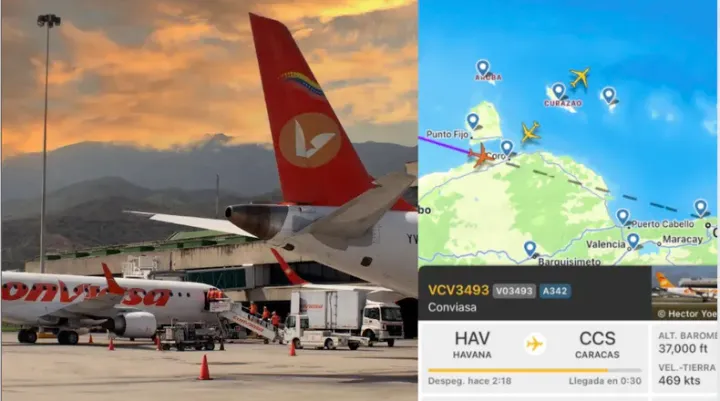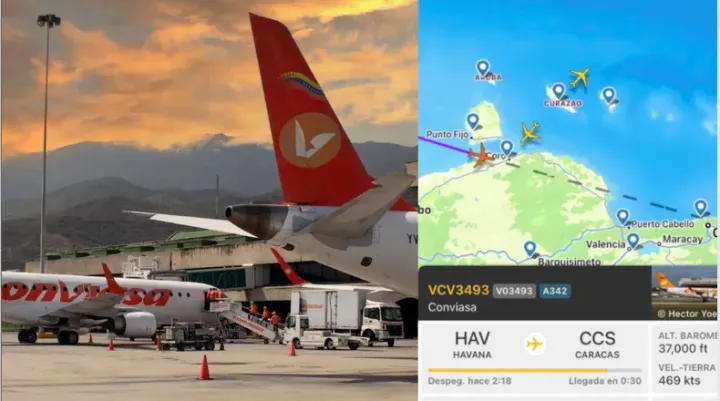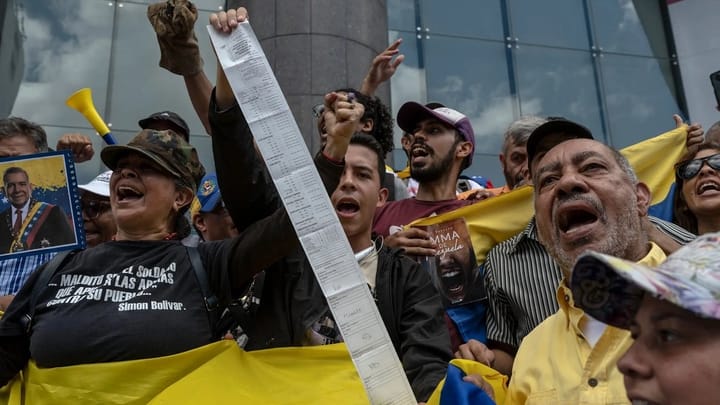Venezuelans react with astonishment and disappointment at the release and arrival in Caracas of Alex Saab.
Saab was received at the airplane staircase that brought him to Venezuela by Cilia Flores, Maduro's partner, and then transferred with honors to the gardens of the Miraflores Palace.

Venezuelans vented their disappointment and astonishment on social media following a new prisoner exchange between the governments of Nicolás Maduro and Joe Biden, which this time centered on the former Colombian businessman Alex Saab, who was on trial for money laundering and has, according to journalistic investigations, acted as a frontman for Chavismo.
Saab has been at the core of a new prisoner exchange, the third to take place since the establishment of a direct line of communication between the White House and the Miraflores Palace, as part of the new policy towards Venezuela by the Biden Administration. A strategy that put an end to what at the time Donald Trump had defined as a “maximum pressure” strategy to remove Maduro from power.
After long hours of unconfirmed messages, the freedom of Saab was finally corroborated in the USA, who was originally detained in Cape Verde and, after a long and painstaking extradition process, was presented to the US justice system two years ago. In exchange, the Maduro regime released two dozen political prisoners, as well as a dozen American citizens detained in Venezuela, some of whom were detained for political reasons.
However, Washington’s narrative framed this exchange within the negotiations between Caracas and Washington ahead of the potential 2024 presidential elections with the participation of opposition leader María Corina Machado, who had been elected through crowded primary elections but is still politically disqualified.
The candidate attended the Supreme Court of Justice in Caracas last week, and the USA immediately supported this decision, which was also framed within what is known as the Doha agreements due to the secret meetings held there weeks ago by the White House Security Advisor for the Western Hemisphere, Juan González, and the president of the National Assembly, Jorge Rodríguez.
The topic of Saab trended organically on social media this Wednesday due to the different messages from Venezuelans who mainly expressed astonishment and surprise, as the White House had insisted that Saab would not be part of any exchange while under judicial process. Messages of disappointment were also abundant for what was cataloged as a lack of commitment from Washington to the Venezuelan democratic cause, given that the priority seems to be rebuilding good ties with the Maduro regime and reactivating oil production.
“The feeling today is that the post-primary (opposition) momentum was completely lost. The image of Saab in Venezuela is demoralizing, after spending so much time professing that there would be justice in his case,” commented political consultant Luis Peche Arteaga.
Saab was received at the steps of the plane that brought him to Venezuela by Cilia Flores, Maduro’s partner, and was then escorted with honors to the gardens of the Miraflores Palace, where the Venezuelan leader gave him a warm welcome, after more than three years of being detained.
Arrested in Cape Verde while refueling his private jet on his way to Iran to finalize the purchase of gasoline destined for Venezuela, Saab also made lucrative deals with the importation of food from Mexico, which were distributed through the social control networks of Chavismo, known as CLAP (Local Committees for Supply and Production).
After being detained for more than a year in Cape Verde while his extradition to the USA was being decided, Saab finally set foot on American soil on October 16, 2021.
Cape Verde, as a prelude to extradition to the USA, changed everything since Chavismo previously denied its links with Saab. The Venezuelan government fully activated for the defense, the once emblematic lawyer Baltasar Garzón was hired, graffiti was painted and concerts were held within Venezuela, “troops” (as Chavismo calls them) were activated for social media campaigns. It even came to light that Saab had a Venezuelan diplomatic passport.
Among many Venezuelans, following the release of Saab and the prior decision of the USA to effectively annul the sanctions on the oil and gas industry, as well as partially free up mining, there is doubt about what else Washington might have to offer Chavismo in negotiations.
“The indignation among some Venezuelans about the release of Alex Saab is understandable, especially given that US government officials declared that negotiating his release was not on the table as he was under a judicial process,” points out Mariano de Alba, a lawyer in International Law and consultant for Crisis Group.
Political scientist Pablo Quintero, meanwhile, maintains that Chavismo is closing 2023 with a positive balance. He summarizes it in this way: “Juan Guaidó in Miami. Alex Saab in Caracas.” The former interim president, as recognized by some 60 countries in 2019, has ended up residing in Miami during this year, after the opposition actors removed him from his leadership responsibilities.
During Saab’s detention, it came to light that he had collaborated with the USA and had previously acted as an agent for the DEA anti-narcotics agency. Regardless of the role Saab may have from now on within Venezuela, his return to the country injects Chavismo with a victorious narrative and yields political dividends, as the event negatively affects the opposition.
This Wednesday, criticism rained down on the opposition’s mediation team, in the ongoing dialog with the Government. But in reality, two parallel dialogue processes are taking place. The public one, with agreements signed in Barbados two months ago between the Government and opposition, and the secret framework of the conversations between representatives of Maduro and Biden, the latest chapter being in Doha, details of which are unknown.




Comments ()